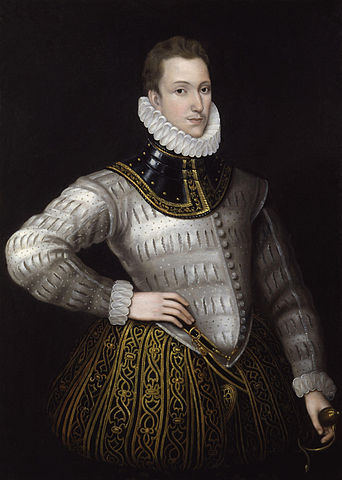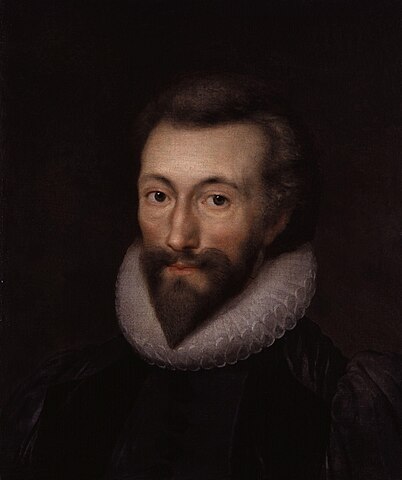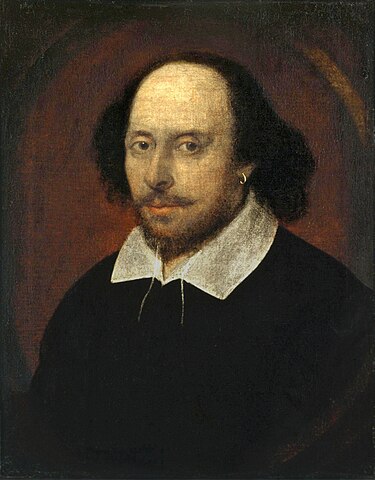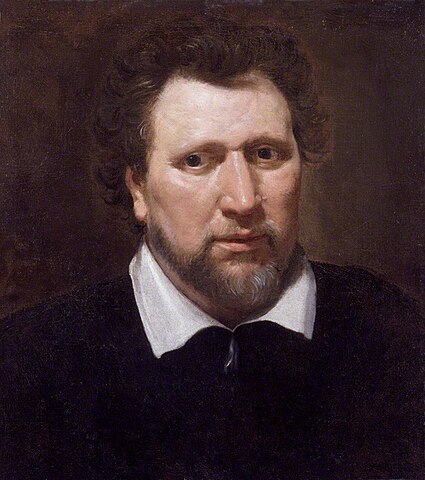Discover our guide to the best 16th century authors who made such an impression that their work is still famous today.
The rise of the Renaissance in Europe ushered in a time of enormous cultural and literary activity throughout the 16th century. Literature was profoundly affected by the Renaissance of classical learning and the emergence of humanist ideals in the sixteenth century. In England, the 16th century saw the birth of epic poetry, the sonnet form, and the development of theatre.
William Shakespeare, Edmund Spenser, and Ben Jonson in England, and Lope de Vega and Miguel de Cervantes in Spain were among the most widely read authors of the time. The 16th century was also a time of theological turmoil. Many writers leveraged their platforms to comment on contemporary political and religious matters. If you’re interested in this topic, you might also like our round-up of the best 15th century authors!
Contents
- Here Are The Best 16th Century Authors
- 1. Sir Walter Raleigh, 1552 – 1618
- 2. François Rabelais, 1483 – 1553
- 3. Thomas Hobbes, 1588 – 1679
- 4. Edmund Spenser, 1552 – 1599
- 5. Sir Philip Sidney, 1554 – 1586
- 6. John Donne, 1572 – 1631
- 7. William Shakespeare, 1564 – 1616
- 8. Lope de Vega, 1562 – 1635
- 9. Ben Jonson, 1572 – 1637
- 10. Miguel de Cervantes, 1547 – 1616
- 11. Sir Thomas More, 1478 – 1535
Here Are The Best 16th Century Authors
1. Sir Walter Raleigh, 1552 – 1618

Sir Walter Raleigh was an English explorer, adventurer, and author renowned for his colonial expeditions to North America and traveling in the New World. Born into a wealthy Devon family in 1552, Raleigh was an accomplished writer with a clear talent for rhyme and meter. Much of his work was composed in stanza form, such as the Elizabethan sonnet. He demonstrated his mastery over phrasing and using classical forms of writing. His works provide valuable insight into sixteenth and seventeenth-century England, especially his tome of five books, entitled, The History of the World.
“Now Gideon, how or wheresoever it were that he refreshed himself and his weary and hungry soldiers, yet he followed the opportunity, and pursued his former victory to the uttermost”
Sir Walter Raleigh, The History of the World
- Amazon Kindle Edition
- Sir Walter Raleigh (Author)
- English (Publication Language)
- 543 Pages - 09/01/2018 (Publication Date) - HardPress (Publisher)
2. François Rabelais, 1483 – 1553

François Rabelais was a French Renaissance writer, physician, and humanist. He is best known for his humorous and satirical works, including Gargantua and Pantagruel, considered one of the greatest works of French literature. Rabelais had many talents, possessing a deep knowledge of classical literature, medicine, and science. He was also a great champion of individual freedom. Often, he used writing to critique the political and religious establishment of his time. Despite facing censorship and opposition from the authorities, Rabelais’ works have endured. They are widely read and appreciated for their wit, satire, and wisdom.
“And thus he rails at drinking all before ’em, And for lewd women does be-whore ’em, And brings their painted faces and black patches to th’ quorum.”
François Rabelais, Gargantua and Pantagruel
- Amazon Kindle Edition
- Rabelais, François (Author)
- English (Publication Language)
- 1026 Pages - 04/09/2020 (Publication Date) - e-artnow (Publisher)
3. Thomas Hobbes, 1588 – 1679

Thomas Hobbes was an English philosopher and author born in 1588. He is best known for his influential work Leviathan, which presents his views on the nature of man and society. Hobbes believed in a social contract in which individuals would give up some of their rights in exchange for protection and security provided by a strong central government. He is also famous for his views on the state of nature, which he described as a state of war in which life would be solitary, poor, nasty, brutish, and short. Hobbes’ ideas have had a lasting impact on political philosophy, and he remains one of the modern era’s most studied and debated thinkers.
“When a man Reasoneth, he does nothing else but conceive a summe total, from Addition of parcels…”
Thomas Hobbes, Leviathon
- Amazon Kindle Edition
- Hobbes, Thomas (Author)
- English (Publication Language)
- 232 Pages - 05/14/2016 (Publication Date) - Rudram Publishing (Publisher)
4. Edmund Spenser, 1552 – 1599
Edmund Spenser was born in London and received a scholarship to study at Merchant Taylors School before enrolling at Cambridge University. He was a courtier and served as Secretary to the Lord Deputy of Ireland, where he witnessed the political and social upheaval of the time. Spenser is best known for his epic poem The Faerie Queene and sonnet sequence Amoretti and Epithalamion, both of which reflect the religious, humanistic, and nationalistic ideals of the splendid Elizabethan age. Spenser’s work was heavily influenced by classical literature and the Italian Renaissance, and he is credited with helping to establish the sonnet form in English poetry.
“Helpe then, O holy Virgin chief of nyne, Thy weaker- Novice to perform thy will, Lay forth out of thine everlasting scryne The antique rolles, which there lye hidden still…”
Edmund Spenser, The Faerie Queene
- Amazon Kindle Edition
- Kaske, Carol V. (Author)
- English (Publication Language)
- 258 Pages - 01/01/2006 (Publication Date) - Hackett Publishing Company, Inc. (Publisher)
5. Sir Philip Sidney, 1554 – 1586

Philip Sidney was an English courtier, poet, and soldier. He was a member of Queen Elizabeth I’s court and was widely considered one of the most prominent figures of the Elizabethan era. Sidney was a talented writer and is best known for his work Astrophel and Stella. He was a crucial figure in developing the English sonnet and his poetry was widely praised for its beauty and elegance.
Sidney was also a dedicated soldier and fought in the Low Countries during the Dutch revolt against Spanish rule. Despite being mortally wounded in battle, he is remembered for his chivalry and bravery. Today, Sidney is considered one of the greatest English poets of the 16th century and a major figure of the English Renaissance. You might also be interested in our round-up of the best 8th century authors.
“I now have learn’d Love right, and learn’d even so, As who by being poisoned doth poison know.”
Sir Philip Sydney, Astrophel and Stella
- Amazon Kindle Edition
- Sidney, Sir Philip (Author)
- English (Publication Language)
- 69 Pages - 10/07/2018 (Publication Date) - Portable Poetry (Publisher)
6. John Donne, 1572 – 1631

John Donne was an English poet, preacher, and clergyman. He was known for his humor, brilliance, and inventive writing style and was considered complicated. Donne played a significant role in the evolution of metaphysical poetry, distinguished by the use of complex conceits, contradiction, and intellectual rigor. His poems, particularly The Sun Rising and A Valediction: Forbidding Mourning, are still extensively studied and regarded as genre masterpieces. You may also enjoy our round-up of the best 13th century authors.
Donne served as the Dean of St. Paul’s Cathedral in London and was a distinguished priest. Donne’s personal life was marred by sorrow, including the loss of numerous children and his wife. He remains one of the finest English poets in history, recognized for his role in the English Renaissance.
“Busy old fool, unruly sun, Why dost thou thus, Through windows, and through curtains call on us?”
John Donne, The Sun Rising
- Donne, John (Author)
- English (Publication Language)
- 736 Pages - 08/14/2001 (Publication Date) - Modern Library (Publisher)
7. William Shakespeare, 1564 – 1616

William Shakespeare, the world-renowned playwright, is best known for writing Romeo and Juliet, King Lear, Macbeth, A Midsummer Night’s Dream, and other iconic plays. Shakespeare was born in Stratford-upon-Avon, England, to John Shakespeare, a highly esteemed tanner, and glover. At eighteen, he wed Anne Hathaway, who was seven or eight years older than himself.
Shakespeare primarily wrote comedies and histories until 1588, when he transitioned into writing tragedies. During this period, he created some of his most renowned works, such as Hamlet and Othello. He is remembered as a writer of remarkable intellectual agility, perceptiveness, and poetic power who wrote with an eye toward human conflict. Shakespeare’s imaginative visions fill the mind and linger there, whether you read his work or witness them performed on stage.
“How sharper than a serpent’s tooth it is to a have a thankless child!”
William Shakespeare, King Lear
- Amazon Kindle Edition
- Shakespeare, William (Author)
- English (Publication Language)
- 401 Pages - 10/20/2015 (Publication Date) - Simon & Schuster (Publisher)
8. Lope de Vega, 1562 – 1635

Lope de Vega was a Spanish playwright and poet. He was one of the leading figures of the Spanish Golden Age and is widely considered one of the greatest playwrights in the Spanish language. Lope de Vega wrote over 1,500 plays, including works such as Fuente Ovejuna and El Perro del Hortelano. His plays were famous during his lifetime and helped establish the Spanish comedia as a major form of Spanish theater.
Lope de Vega was also a prolific poet, and his works include the Sonnets of Dark Love and The Arcadia. Despite his success, Lope de Vega faced personal and financial difficulties, including a tumultuous romantic life and a series of legal disputes. Nevertheless, he remains one of the most important and influential figures in Spanish literary history.
“Be what it may, I will always esteem and adore the divine genius of this gentleman, taking from him what I understand with humility and admiring with veneration what I am unable to understand.”
Lope de Vega, Fuente Ovejuna
- Amazon Kindle Edition
- de Vega, Lope (Author)
- English (Publication Language)
- 233 Pages - 01/21/1999 (Publication Date) - OUP Oxford (Publisher)
9. Ben Jonson, 1572 – 1637

Ben Jonson was an English dramatist, poet, and actor. A contemporary of William Shakespeare, Jonson is regarded as one of the finest English Renaissance playwrights. Every Man in His Humour, Volpone, and The Alchemist are only a few of Jonson’s successful pieces. His works are renowned for their realism, humor, and intellectual depth. He is credited with establishing the English Restoration comedy genre. Jonson was also a gifted poet.
During his lifetime, he composed several poems, such as To Penshurst and An Epitaph on Elizabeth, the Late Queen of England. His keen wit, independent attitude, and abrasive manner made him a colorful and controversial character. Jonson remains one of the most significant and influential personalities in English literature, and his writings are still extensively read and studied today.
“Fortune, that favours fools, these two short hours, We wish away, both for your sakes and ours, Judging spectators; and desire, in place, To the author justice, to ourselves but grace.”
Ben Jonson, The Alchemist
No products found.
10. Miguel de Cervantes, 1547 – 1616

Miguel de Cervantes was one of Spain’s greatest writers, best known for his novel Don Quixote. It has been translated into over 60 languages and is considered one of Europe’s classic novels. De Cervantes was born near Madrid into a low-income family that struggled to provide for its members. His surgeon father had to work multiple jobs to support the household.
In 1570, Miguel joined a Spanish regiment in Naples. He participated in the Battle of Lepanto, an important victory for Spain over the Ottomans. A wound to his left hand during a battle left him disabled. Yet he went on to write and publish numerous works. One is Don Quixote, a story exploring the universality of human emotions.
“To surrender dreams – this may be madness.”
Miguel de Cervantes, Don Quixote
- Amazon Kindle Edition
- Cervantes, Miguel de (Author)
- English (Publication Language)
- 981 Pages - 01/29/2009 (Publication Date) - HarperCollins e-books (Publisher)
11. Sir Thomas More, 1478 – 1535

Sir Thomas More was an English lawyer, statesman, and author, best known for his book Utopia, a work of political philosophy published in 1516. Utopia is a work of fiction that describes an island society and is considered one of the first works of modern political science fiction. In the book, More critiques his time’s social, political, and economic systems and proposes several reforms to create a more just and equal society. Despite its fictional setting, Utopia was widely read and discussed. Its ideas profoundly impacted the political and intellectual climate of the 16th century.
Despite Moore’s many accomplishments, he was executed by King Henry VIII for his refusal to support the king’s separation from the Catholic Church. Today More remains one of the most influential figures in English history and one of the most famous humanists of the Renaissance. Looking for more? Check out the best 17th century authors!
“A pretty face may be enough to catch a man, but it takes character and good nature to hold him.”
Sir Thomas More, Utopia
- Amazon Kindle Edition
- Thomas More (Author)
- English (Publication Language)
- 07/21/2022 (Publication Date) - Grapevine India (Publisher)